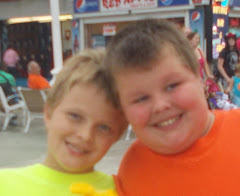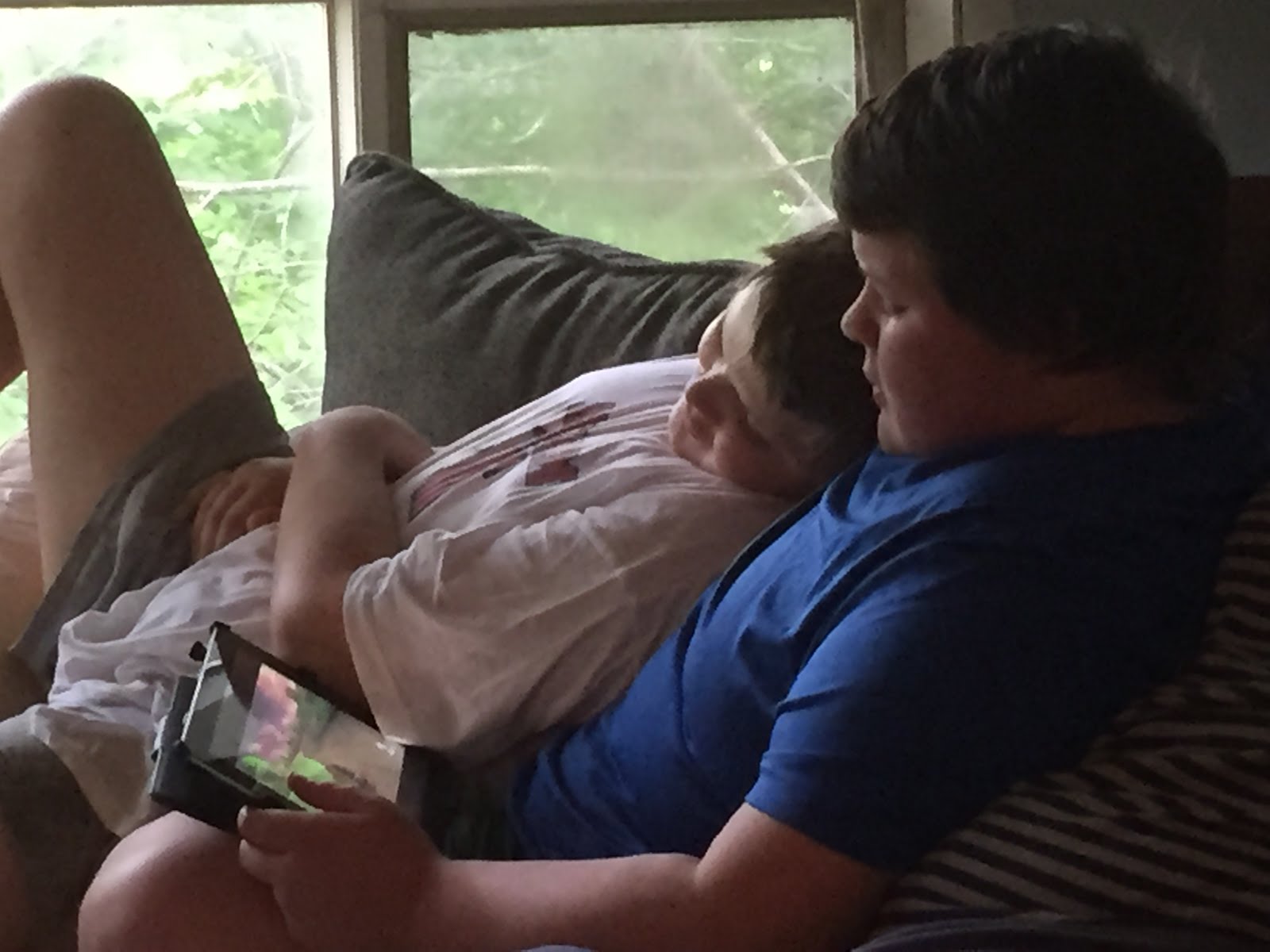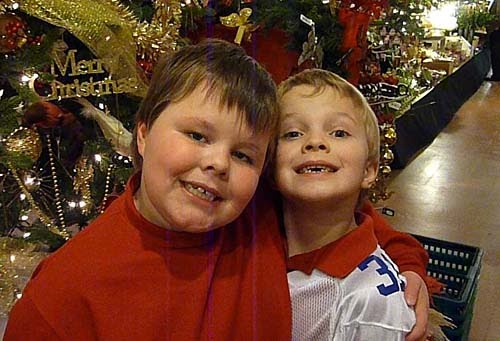You know it's time to stop trying to discuss and just smile and nod when these words escape the lips of your conversation partner:
1. Yeah, normal kids do that, too. Or it's variant, "Yeah, my [normal] kid does that, too." Perhaps to a far lesser degree than my kid does whatever we were talking about. Usually I get this about meltdowns. "Yeah, my kid melts down in the grocery line, too. She hates to wait. She always wants a candy bar."
What I want to reply: "Really? Can she still speak well enough to press for that candybar she wanted? Yes? You have no clue what a meltdown is."
What I usually say instead: "Really? Must be tough to get her through the candy line. They need to keep that 'no candy/no tabloids' line open more."
2. You know, I'm a little autistic myself. This line is usually followed by some minor problem that vaguely suggests a desire for order, or habit. Such as "I don't like florescent lights" or "I like having my coffee with two and a quarter creamers." Small sensory issues are not autism, people. What really gets me is this usually forebodes some comment about autistic adults not needing services (see #3).
What I want to say: "Grow up."
What I usually say instead: "I have my foiables, too. If we didn't, life would be really, really dull."
3. S/he doesn't need {insert service here}, s/he just needs to grow up and learn to do things for him/herself. I wish I had someone to {provide specific service} for me!" OK, folks, I have mild executive dysfunction, some sensory issues, and an occasional stutter. These things don't get int eh way of functioning for me. As an adult, I am expected to clean my own house, keep my own records, shop for my own needs, etc. and I am able to do so, even if I need a little extra push with systems, ideas, and tools. It may not always happen, but I an able to make those compensations. Some people require extra people or extra equipment to make those kinds of compensations- such as an aide, or a communication board.
What I want to say: "So, you're saying a paraplegic shouldn't use a wheelchair, because he's got legs?"
What I usually say instead: "If you're having trouble with {specific service mentioned above}, maybe you should {hire someone to provide that service/buy equipment to help complete task.} [Since the most common one is about having an aide to do things like help with grocery shopping or household tasks, I am usually recommending a maid service or a good mop.]
4. Your child isn't autistic. He just needs a little discipline! This is usually followed by suggestions of violence.
What I want to say: "And where di you get your degree in child development or neurology? With a specialization in autism? And on what basis are you making your diagnosis? How would you like it if someone smacked you for wanting coffee in the morning?"
What I usually say instead: "Yes, we're really lucky, Joey's a good kid, working hard. However, his doctors all agree, he's definitely ASD. I see he's bothering you with his {unusual behavior- usually tracking}, so I'll let you get on with whatever you're doing- we need to go home."
5. Oh, he'll be fine. My cousin's friend's great-aunt's brother twice removed didn't talk 'til they were four! I got this a lot more when Joey was non-verbal, but it still pops up when people notice he's not speaking the way other five-year-olds speak.
What I want to say: "Did they say "momma" and "daddy"? Did they point to objects? Yes? Joey didn't."
What I usually say instead: "How interesting. Speech delays are fascinating. Anyone else in your family have speech delays?"
6. All children have eccentricities. This is another one of those red-flag phrases that means the conversation is about to bend in the direction of "Your kid's not really autistic" or the person has little experience with sensory dysfunction, ritualistic behavior, perseveration, or echolalia. Yes, some little kids like to repeat words. Few repeat entire episodes of television shows. Yes, some little kids like to jump around and crash into things. Few will want to do this for hours on end, and to the point of bruising themselves. Lots of little kids don't like sudden, loud noises. Some will even scream in response. Few will have hour-long meltdowns or have to track lines in the carpet for the next half-hour. And few would think the closing of a car door qualified as a "sudden, loud noise."
What I want to say: "Stuff it in your ear."
What I usually say: "Yes, that's how personalities are made. My guys sure are characters- didn't have much of a chance not to be, with me as their mother."
Sometimes trying to explain the difference between raising a normal kid and raising an autistic one is just not worth the effort There slittle point in trying to talk to someone who is telling you they have no intention of listening to a word you say. Tiem is at a premium here; I have better things to do. When you get that cue of "shut up- I don't want to talk about you or your kid" with the further implication of "I just want to talk about myself" sometimes the best thing to do is to oblige, and get out of the conversation pronto.
Subscribe to:
Post Comments (Atom)









2 comments:
I hear you. I get "all kids are picky eaters" all the time from people. My son eats, literally, 3 things -- we worked with an OT for a year to add that 3rd food. I want to scream every time someone says this. Instead I nod and smile. ;)
oh, I hate that crap!
Post a Comment